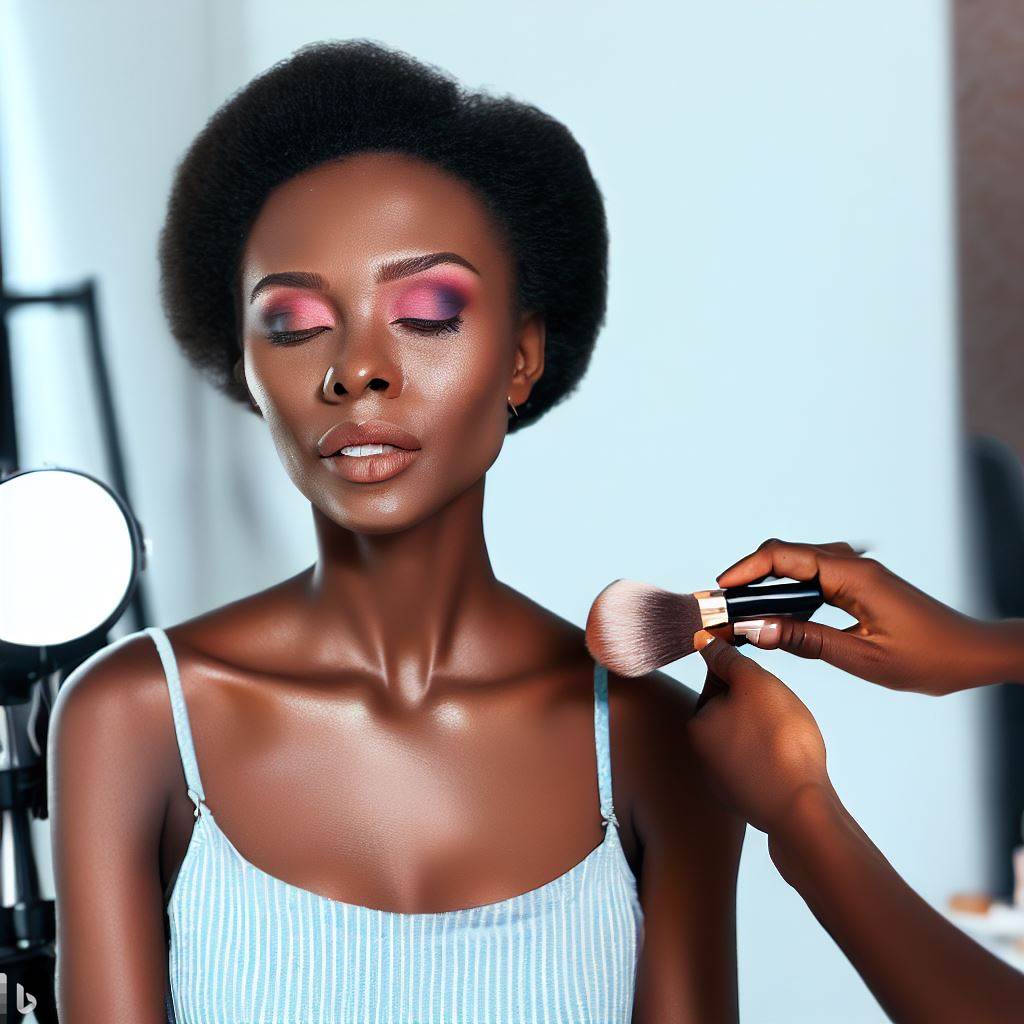Introduction
Ethics and professionalism are essential in maintaining trust, fostering positive relationships, and ensuring fair treatment for artists.
They provide a strong foundation for successful collaborations and long-term success in the industry.
Artists’ agents play a significant role in the career development and management of artists in Nigeria.
They act as intermediaries, representing artists in negotiations, contracts, and business dealings.
As such, they have a responsibility to act ethically and professionally to safeguard the interests of artists and the industry as a whole.
Ethics are moral principles that guide behavior and decision-making, while professionalism refers to the conduct expected from professionals in a particular field.
In the context of artists’ agents, ethical behavior entails honesty, integrity, transparency, and fairness.
Professionalism requires agents to be competent, reliable, respectful, and accountable in their interactions with artists, industry stakeholders, and the public.
Ethics and professionalism are vital for artists’ agents to gain the trust and respect of artists and industry professionals.
By adhering to a code of ethics and maintaining high professional standards, agents can build strong partnerships with artists based on mutual respect and collaboration.
This fosters healthy relationships in which artists’ interests are protected, and their careers are nurtured.
Furthermore, ethics and professionalism contribute to the overall reputation and credibility of the Nigerian art industry.
By uphold these values they contribute to a positive and sustainable ecosystem that attracts investment, opportunities, and recognition for artists and the industry at large.
Basically, ethics and professionalism are essential for artists’ agents in Nigeria.
By embracing these values, agents can build trust, foster positive relationships, and contribute to the growth and success of the Nigerian art industry.
Understanding the Role of Artists’ Agents
Artists’ agents play a crucial role in the art industry, acting as intermediaries between artists and potential buyers.
They possess a deep understanding of the art market and utilize their skills to assist artists in navigating the complex world of art sales and promotion.
This section will delve into the role and responsibilities of artists’ agents.
Role and Responsibilities of Artists’ Agents
Artists’ agents serve as representatives and advocates for artists, working tirelessly to promote their talents, secure exhibitions, and negotiate contracts.
They are responsible for establishing and maintaining relationships with art dealers, galleries, collectors, and curators.
Through their extensive network, agents connect artists with potential buyers, ensuring their work reaches a wider audience.
Additionally, artists’ agents assist in managing administrative tasks, coordinating logistics, and maintaining an online presence for artists.
They also provide valuable advice on pricing strategies, copyright issues, and branding, enabling artists to focus on their creativity
In essence, artists’ agents act as trusted advisors, guiding artists towards fulfilling their artistic ambitions and achieving financial success.
Their Impact on Artists’ Careers and Success
Artists’ agents significantly impact an artist’s career trajectory and success.
They utilize industry expertise to garner exposure, locally and globally, seeking prestigious opportunities for showcases, exhibitions, and sales.
Agents facilitate access to an extensive collector network, driving demand and potentially raising prices. Negotiating on behalf of artists, agents ensure equitable compensation for their creations.
Besides promoting and selling art, agents contribute to artists’ professional development. They offer guidance on presentation, portfolio curation, and long-term career planning.
Constructive feedback aids artists in refining their vision and enhancing their practice, fostering continuous improvement.
Agents also aid in building artists’ brands, cultivating distinct identities resonating with collectors and the art community.
Strategic marketing, social media management, and press releases shape an authentic public image, drawing both new and seasoned collectors.
In Nigeria, artists’ agents serve as indispensable intermediaries, managing various aspects of artists’ careers.
They provide valuable guidance, forge connections, and nurture growth.
Ultimately, agents expand artists’ reach, ensure financial success, and enable a steadfast focus on creativity.
Read: Challenges and Triumphs in Nigerian Journalism
Key Ethical Considerations for Artists’ Agents in Nigeria
Transparency and disclosure of information to artists
Transparency fosters trust between artists and their agents. Agents should disclose all relevant information about contracts, fees, commissions, and any potential conflicts of interest.
Full disclosure allows artists to make informed decisions about their careers and helps avoid misunderstandings or disputes in the future.
Agents should maintain open lines of communication and keep their artists informed about any developments or opportunities, while also providing accurate and timely financial statements.
Avoidance of conflicts of interest
Artists’ agents must be diligent in identifying and avoiding conflicts of interest that could compromise their ability to act in the artists’ best interests.
Agents should not have personal or financial relationships with parties that may influence their decisions or hinder their ability to negotiate fair deals for the artists they represent.
Furthermore, agents should refrain from representing artists whose interests conflict with existing clients, ensuring fairness and impartiality in their professional relationships.
Fair and honest representation of artists
Agents have a ethical duty to represent artists in a fair and honest manner, promoting their work and talent accurately and without misleading or false claims.
Agents should not engage in deceptive practices such as inflating an artist’s accomplishments or misrepresenting their work to attract clients or secure deals.
By maintaining integrity and honesty, artists’ agents can build trust and credibility within the industry, benefiting both their clients and themselves in the long run.
Protection of artists’ rights and interests
Agents play a crucial role in safeguarding the rights and interests of the artists they represent. This includes advocating for fair compensation, protecting copyright, and ensuring the artists retain control over their work.
Agents should be diligent in reviewing and negotiating all contracts or agreements on behalf of their artists, ensuring that their rights are respected and protected.
Additionally, agents should stay informed about relevant laws and regulations to effectively guide and protect their clients’ interests in an ever-evolving artistic landscape.
Essentially, ethical considerations are paramount for artists’ agents in Nigeria.
Transparency, avoidance of conflicts of interest, fair representation, and protection of artists’ rights are crucial elements that contribute to a healthy and successful agent-artist relationship.
By adhering to these ethical principles, agents can not only build trust and credibility but also contribute to the growth and development of the Nigerian art industry as a whole.
Read: Nigeria’s Journalism Landscape: Past, Present, Future
Professionalism in Artists’ Agent Operations
Maintaining confidentiality and privacy
- Agents must respect and protect the privacy of their artists, keeping their personal information confidential.
- Sharing sensitive information without consent can damage the reputation and trust between the artist and agent.
- Agents should have secure systems in place to store and protect artists’ confidential information.
Timely communication and responsiveness
- Artists’ agents should respond promptly to their artists’ requests, inquiries, and concerns.
- Efficient and effective communication builds trust and enhances the working relationship between agents and artists.
- Agents should establish clear channels of communication and maintain accessibility for their artists.
Establishing clear contracts and agreements
- Agents should prepare written contracts that outline the scope of services, expectations, and terms of engagement.
- Clear contracts protect both the agent and the artist, ensuring mutual understanding and legal compliance.
- All parties involved should carefully review and agree upon the terms outlined in the contract.
Providing professional guidance and advice
- Artists’ agents should offer expert advice and guidance based on their industry knowledge and experience.
- Agents must stay up-to-date with market trends and changes in order to provide their artists with accurate information.
- Professional guidance helps artists make informed decisions and navigate the complexities of the art world.
In general, professionalism in artists’ agent operations is crucial for creating successful partnerships.
Agents must prioritize maintaining confidentiality and respecting privacy, as well as ensuring timely communication and responsiveness.
Clear contracts and agreements are essential to establish mutual understandings and protect all parties involved.
Finally, providing professional guidance and advice is instrumental in helping artists navigate the art industry and make informed decisions.
Read: Examining the Growth of the Makeup Industry in Nigeria

Challenges and Potential Consequences of Unethical Practices
It is evident that unethical practices of artists’ agents in Nigeria create significant challenges and potential consequences.
The exploitation of artists not only undermines their creative work but also hinders their personal and professional growth.
Unscrupulous agents take advantage of their vulnerable position, manipulating and controlling artists for their own benefit.
Financial exploitation is another severe implication of unethical practices.
Artists, being dependent on their agents for various opportunities, often receive meager compensation in exchange for their valuable creations.
This disparity limits their financial stability and growth, perpetuating a cycle of exploitation.
Furthermore, unethical practices damage artists’ careers and reputation.
Agents who engage in such practices tarnish the image of their clients, making it challenging for artists to establish trust and credibility within the industry.
This damaged reputation can result in missed opportunities and hinder an artist’s overall success and growth.
From a legal perspective, agents who partake in unethical practices open themselves up to potential lawsuits and financial consequences.
The legal system in Nigeria is designed to protect artists and their rights, meaning agents engaging in unscrupulous behavior can face severe legal penalties such as fines and the loss of professional licenses.
Moreover, agents who engage in unethical practices lose credibility and trust within the industry, decreasing their chances of attracting clients and future collaborations.
Generally, unethical practices carried out by artists’ agents in Nigeria have far-reaching negative effects.
Exploitation of artists, damage to their careers and reputation, as well as legal and financial implications for agents, all contribute to the detrimental consequences of unethical behavior.
Artists, agents, and the industry as a whole must recognize the importance of ethics and professionalism to promote a fair, transparent, and sustainable ecosystem for the flourishing of the arts in Nigeria.
Read: Networking Tips for Aspiring Artists’ Agents in Nigeria
Best Practices for Ethical and Professional Artists’ Agents in Nigeria
Developing and adhering to a code of conduct
- Create a comprehensive code of conduct that outlines ethical standards and expectations.
- Communicate the code of conduct to all artists, clients, and stakeholders.
- Regularly review and update the code of conduct to ensure its relevance.
- Ensure all agents understand and adhere to the code of conduct in their daily activities.
Continuous professional development and training
- Invest in training programs and workshops to enhance agents’ knowledge and skills.
- Encourage agents to attend industry conferences and seminars to stay updated.
- Support agents in obtaining professional certifications to validate their expertise.
- Regularly review agents’ performance and provide constructive feedback for improvement.
Collaboration and networking within the industry
- Foster a culture of collaboration among artists’ agents, promoting knowledge sharing.
- Encourage agents to build relationships with artists, clients, and industry professionals.
- Participate in industry platforms and events to expand networks and stay informed.
- Create opportunities for agents to collaborate on projects and share resources.
Ethical decision-making and accountability
- Promote transparency and honesty in all interactions with artists and clients.
- Ensure agents are aware of legal and ethical guidelines related to their work.
- Encourage agents to consider the best interests of the artists when making business decisions.
- Establish mechanisms for reporting ethical concerns and hold agents accountable for their actions.
By implementing these best practices, artists’ agents in Nigeria can cultivate an ethical and professional environment that benefits both artists and the industry as a whole.
It is crucial for agents to prioritize integrity, continuous learning, collaboration, and ethical decision-making to build trust and foster long-term success.
Case Studies: Examining Ethical and Unethical Practices
Analyzing real-life examples of ethical artists’ agent behavior
In order to fully understand the importance of ethics and professionalism for artists’ agents in Nigeria, it is crucial to examine real-life examples of ethical behavior in this industry.
These examples will serve as guideposts for agents to follow and inspire them to uphold the highest standards in their work.
Case Study 1: The Honest Agent
In this case, an artist’s agent represents a rising star in the Nigerian art scene.
The agent consistently ensures that all contractual obligations are met, transparently communicates with the artist about financial matters, and acts in the artist’s best interest at all times.
As a result, the artist feels supported and motivated to focus on their artistic endeavors, leading to a successful and harmonious working relationship.
Case Study 2: The Advocate for Fair Compensation
Another example of ethical behavior is seen in an artist’s agent who actively campaigns for fair compensation for their client.
This agent understands the value of the artist’s work and fights for appropriate remuneration, negotiating contracts that reflect the true worth of the artist’s contributions.
By doing so, the agent not only protects the artist’s interests but also uplifts the entire artistic community by setting a precedent for fair compensation.
Notorious cases of unethical conduct and their consequences
While there are many agents who exhibit impeccable ethics, unfortunately, there are also notorious cases of unethical conduct that have left a lasting impact on the Nigerian art industry.
These cases stand as cautionary tales, illustrating the importance of ethical conduct and the severe consequences of betraying the trust of the artists they represent.
Case Study 1: The Exploitative Agent
In this case, an agent takes advantage of their client’s vulnerability and exploits their talent for personal gain.
They manipulate contracts, misappropriate funds, and exploit the artist’s naivety.
The consequences for such unethical behavior are far-reaching, including damage to the artist’s reputation, legal repercussions, and a loss of trust within the industry.
Publish Your Professional Profile, Business or Brand
Showcase your expertise, gain trust, and boost visibility instantly on Professions.ng.
Publish NowCase Study 2: The Deceptive Agent
In this notorious case, an agent deceives their client by promising them lucrative opportunities that they have no intention of delivering.
The agent overpromises and underdelivers, leading to disappointment, loss of potential opportunities, and a tarnished reputation for both the agent and artist involved.
This unethical behavior not only harms the artist’s career but also erodes trust within the industry as a whole.
These case studies serve as reminders of the significance of ethics and professionalism for artists’ agents in Nigeria.
They highlight the need for agents to have integrity, transparency, and a genuine commitment to the well-being of the artists they represent.
By analyzing both ethical and unethical examples, they can learn from past mistakes and strive to create an environment of trust, respect, and fairness within the Nigerian art industry.
On a final note, examining case studies of ethical and unethical practices in the realm of artists’ agents provides valuable insights into the importance of ethics and professionalism within this industry.
Agents who uphold high ethical standards contribute to the growth and development of Nigerian art, while those who engage in unethical behavior risk damaging their reputation and those they represent.
Therefore, artists’ agents in Nigeria must prioritize ethics and professionalism in order to foster a flourishing artistic community based on trust and mutual respect.
Conclusion
Ethics and professionalism are crucial for artists’ agents in Nigeria as they ensure trust, credibility, and integrity in the industry.
By following ethical standards, agents can build strong relationships with artists and clients, leading to long-term success.
It is essential for artists’ agents to prioritize ethical conduct and uphold professionalism in their dealings.
By setting high standards, agents can contribute to the growth and positive reputation of the Nigerian art industry as a whole.
It is important to foster transparency, honesty, and fairness in all aspects of agent-client relationships and transactions.
Remember, as artists’ agents, we have a responsibility to represent our clients ethically and professionally.
Let’s prioritize integrity and set a positive example for others in the industry.




